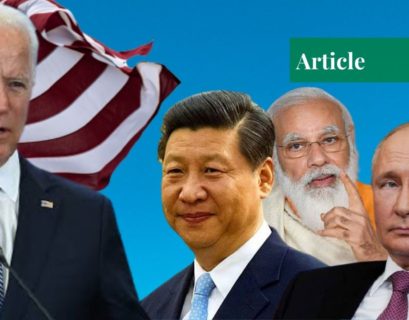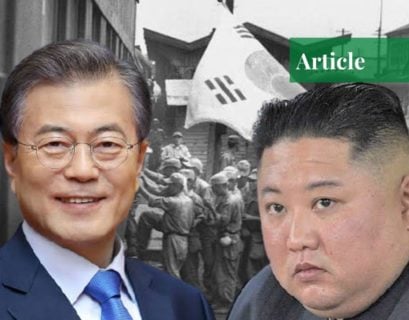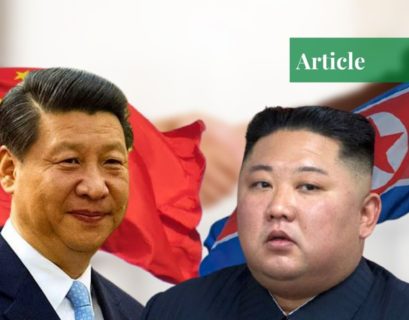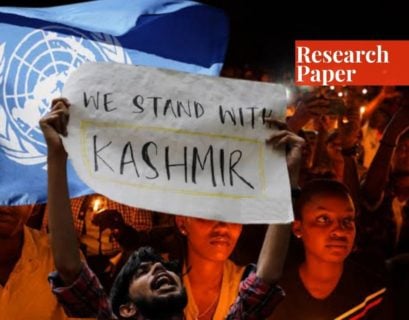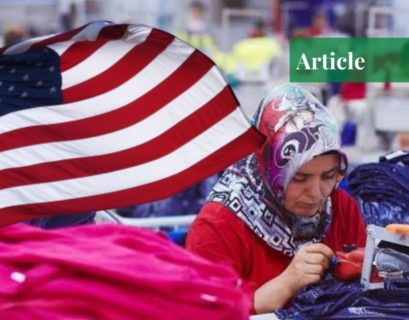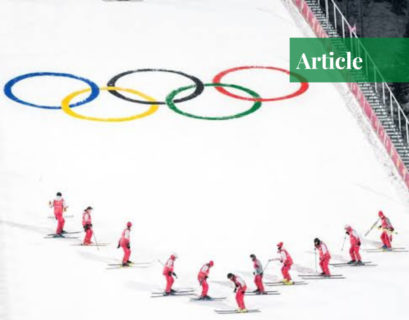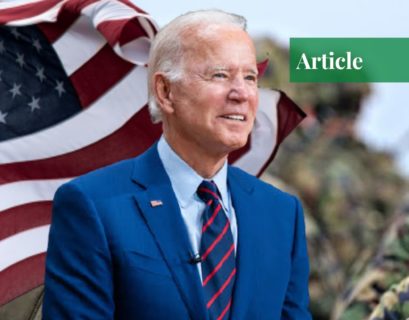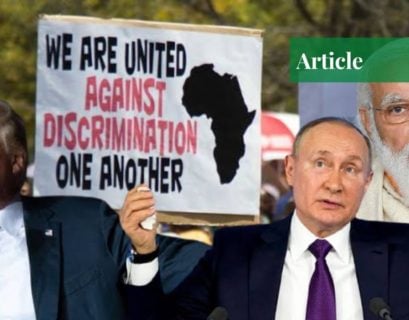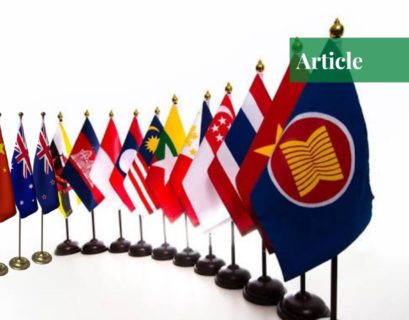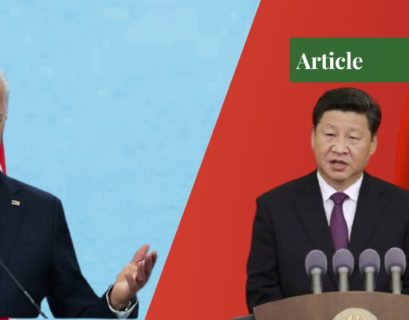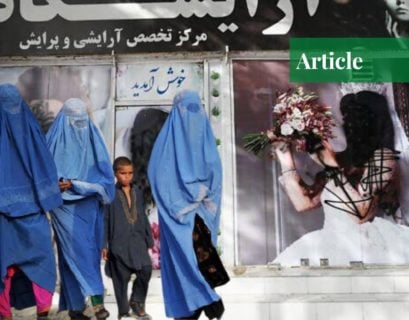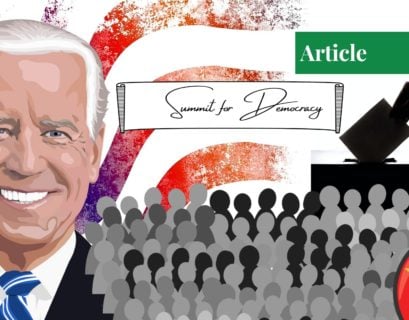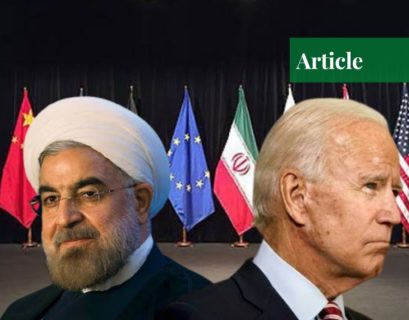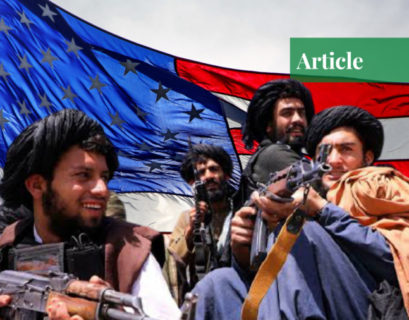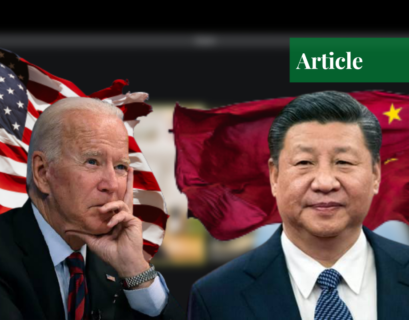A Tug of War Between America and the Rising Powers
A unipolar world is transitioning into that of a multipolar, stirring the debate on the decline of the US once again. China, India, and Russia — the major contenders — are challenging the US’s sole authority. The author, Ali Raza Jalbani, follows the debates closely and shares what he’s noticed about the shifting — or sharing — of power in the global arena.
An End in the Korean War: A True Possibility or a Pipe Dream?
Though the Korean War concluded with the 1953 armistice, there has been no formal declaration of an end to the war in the last 70 years. As such, both North and South Korea are still, technically, at war. The author, Hammad Khan, notes that the current South Korean president, Moon Jae-in, has been quite resilient in his approach to officially end this war. While the parties involved in the conflict – North and South Korea, the US, and China – have agreed in principle to end it, the US has some reservations which have made it reluctant to accept a peace agreement.
The Mercurial Relationship Between China and North Korea
Many take the Sino-North Korean friendship as an established fact, but there are more undertones to this alliance than meets the eye. Infamously dubbed as the ‘Lips and Teeth’ alliance, the People’s Republic of China and the Democratic People’s Republic of Korea had a cautious beginning — and now an uncertain future.
Questioning the Role of the United Nations (UN)
This research paper aims to evaluate the role of the United Nations Organization in light of some of the most highlighted events in its history, ranging from Rwanda to Kashmir; the crises mentioned will be summarized and analyzed to provide the reader with only the relevant information which is consistent with the central theme of this paper.
In addition to this, the paper will also shed light upon the effectiveness of the UN when it comes to dealing with the world’s superpowers. A brief part of this paper will scrutinize the role of the International Court of Justice from a legal point of view, covering its overall structure and the extent to which its decisions are binding on the member Nations.
The Enactment of the Uyghur Forced Labor Prevention Act by the US
Signed into law on 23rd December 2021, the Uyghur Forced Labor Prevention Act will prevent US businesses and consumers from becoming complicit in human rights violations. The Act will radically reorient the US’s foreign policy with China, as it will presume that goods made wholly or in part in the Xinjiang region are a result of forced labor and hence the onus to disprove that presumption will be on the importer.
The Diplomatic Boycott of the 2022 Beijing Olympics
February is nearing and so are the 2022 Beijing Olympics. The US’s boycott of the Games has motivated many states – Australia, Canada, and the UK to name a few – to follow suit. China hasn’t taken kindly to these political ploys and in fact has warned countries of the price that they will pay for boycotting the 2022 Winter Olympics in Beijing.
Can Pakistan’s EVMs Survive Cyber Attacks?
The Cambridge Analytica scandal, the disclosure of the Pegasus spyware, and the hacking of Pakistan’s Federal Board of Revenue (FBR) have made the vulnerable nature of cyberspace abundantly clear. The author, Taaha Rauf, notes that Pakistan’s decision to use electronic voting machines (EVMs), in the 2023 general elections, comes with the ever-increasing threat of cyber attacks. He explains that since the US, Australia, and Canada, already employ technology for several purposes in their elections, they have undertaken measures to ensure their cybersecurity and election integrity. For Pakistan to do the same, he makes certain recommendations.
Nine Famous Straits of the World: Exploring Trade Routes
This article describes some of the most important straits of the world. Straits are narrow stretches of water that serve as significant strategic and trade routes. As almost 80 percent of the world’s trade is carried over the waves, these straits provide navigable routes to various ships thus playing a critical role in the trade of the world.
The Hypocrisy of Democracy in America: From Military Interventions to the Recent Summit
Though America considers itself the true representative of democracy, its actions prove otherwise. The hypocritical nature of the United States is apparent from its propensity to get militarily involved in other states, like Afghanistan, Syria, and Iraq, in the name of promoting democracy. The authors argue that contrary to establishing a democratic regime, the US military interventions have worsened the instability in these states. Moreover, the US itself is a dysfunctional democracy and even the Summit for Democracy can be seen as an effort to divide the world and preserve the US hegemony.
Nationalism in International Relations: Tracing the Roots of Xenophobia
Nationalism captures the important yet equally detrimental—if manifested unwisely—unity that is triggered from the loyalty and dedication towards one’s homeland. To the author, Mahrukh Khalid Siddiqui, xenophobia and discrimination are viewed as the by-products of classical nationalism. Discriminatory actions are fueled by presumptions, prejudice, lack of knowledge, and stereotypes.
The Regional Comprehensive Economic Partnership (RCEP): Strategic Interests & Economic Recovery
The Regional Comprehensive Economic Partnership (RCEP) is a free trade deal and has a total of 15 member states from the ASEAN, East Asia, and Oceania. It is considered to be the world’s largest trade bloc with respect to the combined GDP of the member states.
The author, Saira Javaid Cheema, discusses both the opportunities and threats that the RCEP holds for member states and non-member states.
Build Back Better World (B3W) vs the Belt & Road Initiative (BRI)
The Build Back Better World (B3W) project – a $40 trillion investment venture undertaken by the G7 states in June 2021 – aims to contest China’s Belt and Road Initiative (BRI). While B3W only exists on paper, BRI has already embedded its roots in several regions. The author, Muhammad Ali Memon, notes that in their race to achieve economic hegemony, the G7 states and China are investing in developing states and creating a cycle of economic dependency akin to economic imperialism. He argues that the B3W contracts will follow a pattern similar to China’s debt contracts, giving the lending state significant power over the borrowing state’s decision-making process.
Women of Afghanistan under Taliban Rule
Since the Soviet invasion of Afghanistan in 1979, the state has been in a constant state of turmoil, the brunt of which Afghan women had to face. The status of women’s rights worsened after the Taliban first came to power in 1996. The women of Afghanistan were forced to marry Taliban soldiers, deprived of their right to education, healthcare, and employment, and were subjected to violence and public executions. Despite the claims of the current Taliban regime, the past cannot be erased. After the US withdrawal from Afghanistan, the relative freedom that Afghan women had gained over the years is being threatened, and they fear for their lives once again.
President Biden’s Summit for Democracy 2021: A Big Question Mark?
President Biden of the US will host a two-day Summit for Democracy this week to cast an eye over the current status of democracy in the world. Much like the author, many feel this summit to be an affront to the US’s ‘undemocratic’ rivals, China and Russia — two nations that were struck off the invite list.
The Iranian Nuclear Deal: What Has Changed During Biden’s Term?
The Joint Comprehensive Plan of Action (JCPOA) – a deal to limit Iran’s nuclear capability – fell apart after the former US president, Donald Trump, pulled the US out of the deal in 2018 and imposed sanctions on Iran. The author, Habiba Ali, notes that although the Biden administration is well aware of the importance of such an agreement with Iran, the latter has made it clear that without an end to the sanctions on it, the JCPOA cannot be reinitiated. Furthermore, despite the two states’ interest in restoring the deal, the 2021 negotiations in Vienna and Tehran have failed to revive it.
The Second Round of the Doha Talks Between America and the Taliban
About 40% of Afghanistan’s GDP and 75% of its public expenditure depends upon foreign aid. Since the Taliban takeover, the foreign assistance to the state has taken a plunge and the US government has seized over $9.5 billion worth of Afghan assets, worsening the humanitarian and economic crisis in Afghanistan. Given the deteriorating situation in Afghanistan, the US and the Taliban have, once again, decided to cooperate and pursue a second round of talks in Doha. Although the Taliban regime has not been recognized by the US, the former is hopeful that the two-day talks will start a “new chapter” in their political relations.
The Biden-Xi Summit: Deliberating Taiwan, Trade, HR Violations & Climate Change
The much-awaited Biden-Xi virtual summit took place on 15th November to deliberate and resolve the contentious issues between the two states. The meeting focused on four key areas: Taiwan, trade relations, human rights violations, and climate change.
